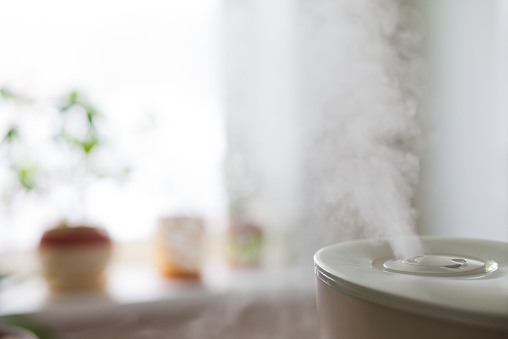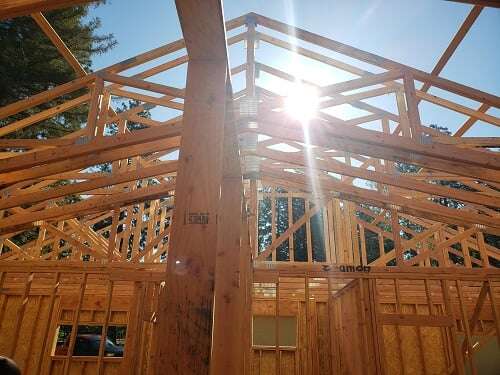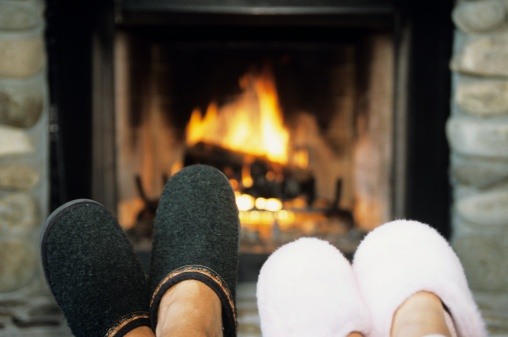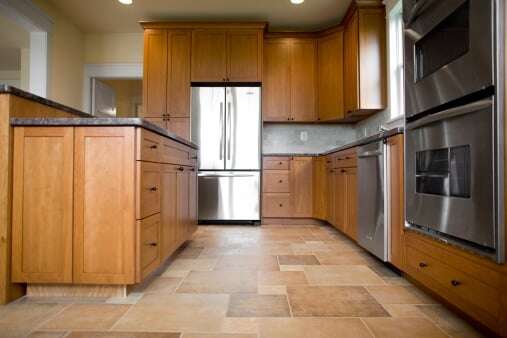 It can sneak up on you in myriad ways. You reach for a metal object and you get an electrical shock. You run a comb or brush through your hair and it's met with a shower of static. Or you might feel physical discomfort in the form of dry skin, a scratchy throat, irritated sinuses or a nagging cough.
It can sneak up on you in myriad ways. You reach for a metal object and you get an electrical shock. You run a comb or brush through your hair and it's met with a shower of static. Or you might feel physical discomfort in the form of dry skin, a scratchy throat, irritated sinuses or a nagging cough.
It can get worse if you ignore the signs of dry air in your home. You run the risk of inflaming the mucous membrane that lines your respiratory tract, increasing the risk of contracting the flu and other infections. Even your home can suffer. Dry air can cause wood furniture and hardwood floors to contract, splinter and even crack open along seams.
The solution lies with adding moisture to your indoor air. During the summer, “humidity” conjures up discomfort, but in the winter, it's vital to counteract the myriad effects of dry air.
Experts In Your Home follows the lead of the U.S. Environmental Protection Agency in recommending an indoor relative humidity level of between 40 and 50 percent. You can monitor this level – and make the necessary adjustments – with a humidity gauge, also known as a hygrometer. This nifty tool is sold at most home improvement and hardware stores.
The Case for Humidifiers
So how can you infuse your home with a healthy amount of moisture while using your heating system this winter? You might be surprised to learn that there are many natural, practical ways to do so. (Some might even generate giggles from the young ones, but whoever said that humidity is a dry topic?)
First, the case should be made for humidifiers. The most efficient type is whole-house humidifier, which can be installed in your cooling and heating system with ease. It sends humidity in the form of water vapor through your ducts, and the level is monitored by your thermostat.
A whole-house humidifier carries the added benefit of helping you feel warmer. And when you feel warmer because of extra moisture in the air, you can lower your thermostat and save money on your energy bill, too.
These projected cost savings are important to keep in mind, especially because whole-house humidifiers are an investment that not every homeowner can afford to make. This is why many homeowners turn to small, portable humidifiers.
There are four basic types of humidifiers that can help combat dry air in your home:
- Steam or warm mist humidifiers, which boil water and release steam
- Ultrasonic humidifiers, which use an ultrasonic frequency to create water droplets
- Impeller/air washer humidifiers, which create a cool fog
- Wick or evaporative humidifiers, which draw water from a reservoir and rely on indoor air to absorb the water
Warm Up to These Creative Tips
Just looking closely at this list might spawn you to think of your own creative ways to inject moisture in your indoor air. If so, Experts In Your Home likes the way you're thinking because we know these ideas can make a noticeable difference, too:
- Place bowls of water on heat registers for an amazing burst of moisture when the furnace runs. (Just don't forget to check and refill the bowls; the water might evaporate quickly.)
- Place bowls or vases filled with water in sunny windows or directly in the path of direct sunlight.
- Bring a pot of water to boiling on your stove – and let the water rumble until the water is nearly gone
- Leave the door open during steamy showers – and heighten the effect by using a portable fan to push the damp air out
- Turn off the dry cycle on your dishwater and open the door to air-dry dishes (and save energy, too)
- Hang damp laundry on racks instead of using your dryer (another energy saver)
- Place some houseplants on various levels of your home. (For a full selection, see a previous Experts article: “Home Tips: Plants that are Good for Indoor Air Quality.”)
- Spray a fine – an oh-so-fine – mist of water in all the rooms in your home, taking care to spray only what will evaporate quickly (and avoiding contact with your furniture, electronics, carpets and bedding)
Experts In Your Home would love to hear how you might find clever new ways to humidify your indoor air, so don't be a stranger – and don't wait too long after you discover the effects of dry indoor air sneaking up on you.
Have a heating system problem? We are can help you out. If you would like to schedule a heating system tune-up click below:








